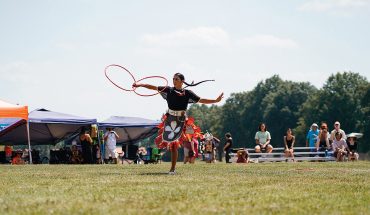by Todd Cohen
photograph by Jillian Clark
As a young girl growing up in Lumberton, Selene Brent never heard of the Junior League. But she did get deeply involved in giving back to the community, learning critical lessons about sharing and leadership that have informed her work for the past year as president of the Junior League of Raleigh.
The daughter of a schoolteacher and a barber who had been a firefighter, Brent at 6 started doing missionary work for her church, delivering food to people in need. At 8, she joined the Girl Scouts. At 12, she joined 4-H. And in a community with a population divided about evenly among African Americans, the Lumbee tribe, and whites, she found it natural to get along with people who did not look the same or come from the same background as she did.
“I learned a long time ago to accept people of different races and ethnicities, and learned to work together and in environments today that are not so homogeneous,” says Brent, 48. “To me, the Junior League is one of those organizations that reach out to all people and try to make a difference regardless of who they are.”
Celebrating 85 years
The second African-American president of the Raleigh League, Brent has headed the organization during a year in which it celebrated its 85th birthday and conducted its first-ever survey of its members’ diversity.
The Raleigh League began in March 1927 as the Junior Guild, which enlisted 53 women as members. Three years later, with 87 members, it was accepted into the Association of Junior Leagues.
Today, with 1,700 members, it is the 11th largest league among 290 in the U.S., Canada, Mexico, and England. Together those members deliver about 50,000 volunteer hours a year.
Operating with an annual budget of $1.6 million – most of it from membership dues – the League works to “promote volunteerism, develop the potential of women, and improve communities through the effective action and leadership of volunteers,” Brent says.
Since 2000, the League has focused its volunteerism and financial contributions to groups that work to improve the lives of youth.
This year, for example, the League is partnering with agencies like SAFEchild, a nonprofit it launched in 1993 to help prevent child abuse and work with families; with the Community Learning Center at Heritage Park, which is a program of Communities in Schools of Wake County; and with the Inter-Faith Food Shuttle, for which it provides backpack meals for 65 children every week throughout the school year.
For the backpack program, League volunteers solicit food from members and the public, stock the backpacks at the League’s headquarters at 711 Hillsborough St., and deliver them to Lacy and Hunter elementary schools.
And this spring, first-year provisional members are working on service projects at a handful of agencies, including an after-school mentoring program at the AventWest community in southwest Raleigh, and a national “Kids in the Kitchen” program at the Brentwood Club of the Boys & Girls Clubs of Wake County.
Financial support
With revenue from its Shopping Spree, a holiday market at the Raleigh Convention Center that features vendors from throughout the U.S., the Junior League nets about $200,000. Of those funds, it provides $15,000 to nonprofits through a competitive grants process, and another $85,000 to support its partner agencies. It uses the remaining funds to support its operations.
The League generates another $175,000 a year for operations from the sale of gently used clothing donated to the Bargain Box store it operates in Cameron Village. It also provides $85,000 worth of vouchers to its partner agencies and to school guidance counselors to give to students or parents to shop at the store.
And it generates revenue from tenants and groups that use space in its headquarters building.
Looking ahead
Brent has spent the last year working two full-time jobs – as information-technology project manager at Cisco, and as president of the League. She will be succeeded as president on June 1 by Kathryn West, a broker/realtor at Berkshire Hathaway York Simpson Underwood Realty.
Brent, who served as community funding captain for Linda Douglas, the League’s first African-American president in 2007-08, has made diversity a special area of focus during her tenure. A first-ever diversity survey in the works will set a baseline for tracking the League’s membership using information such as race, religion, ethnicity, education, work, income, family, and extended family responsibilities.
“Today it’s definitely a modern League,” Brent says. “We have people of different ethnic backgrounds, religions, races, cultures. We’re impacting the lives of young people to make them stronger, better citizens, making them prepared to be part of our future. Everybody does this because they love this community and they want to improve it. And they don’t even consider this work.”




